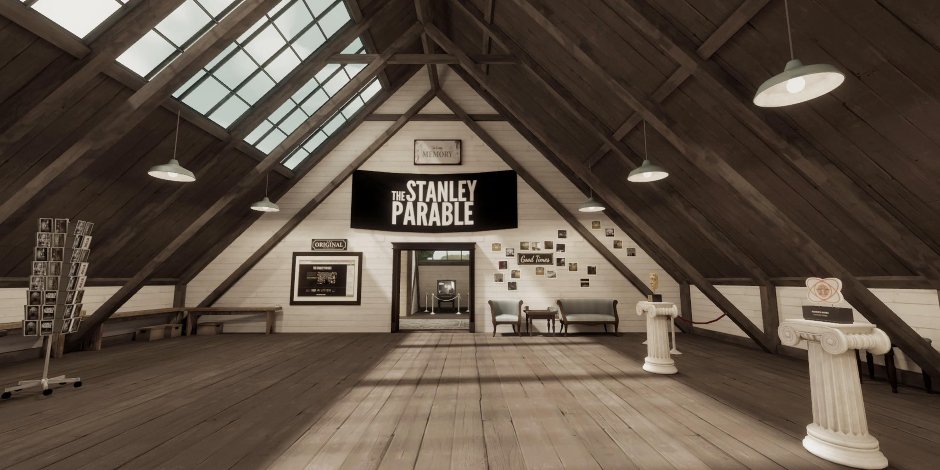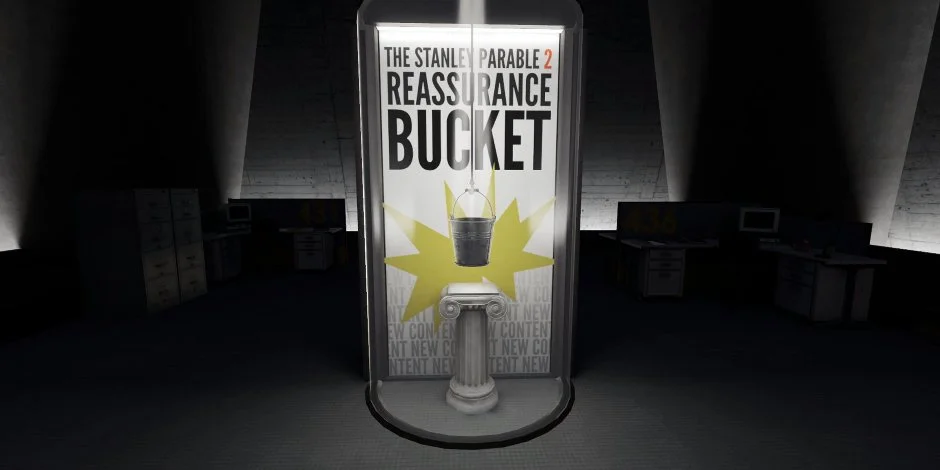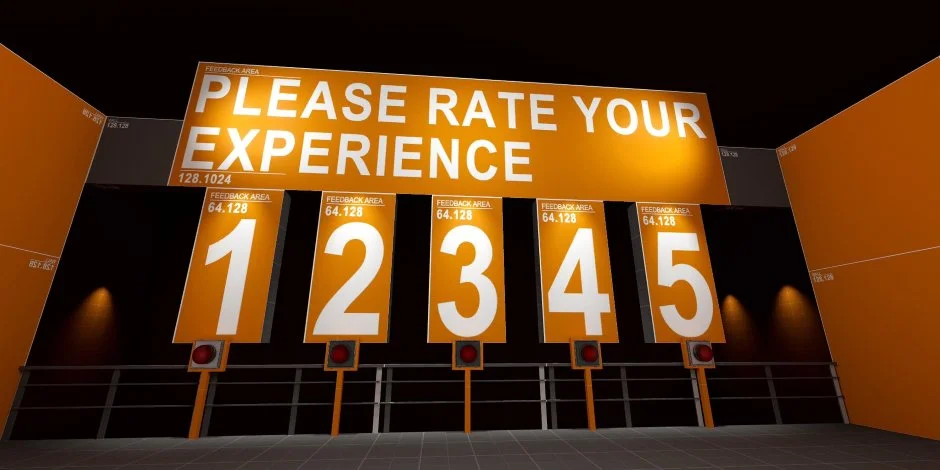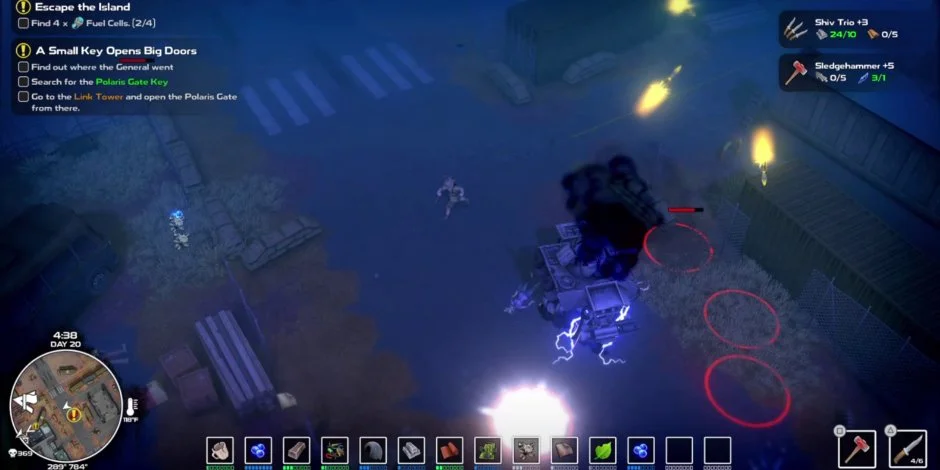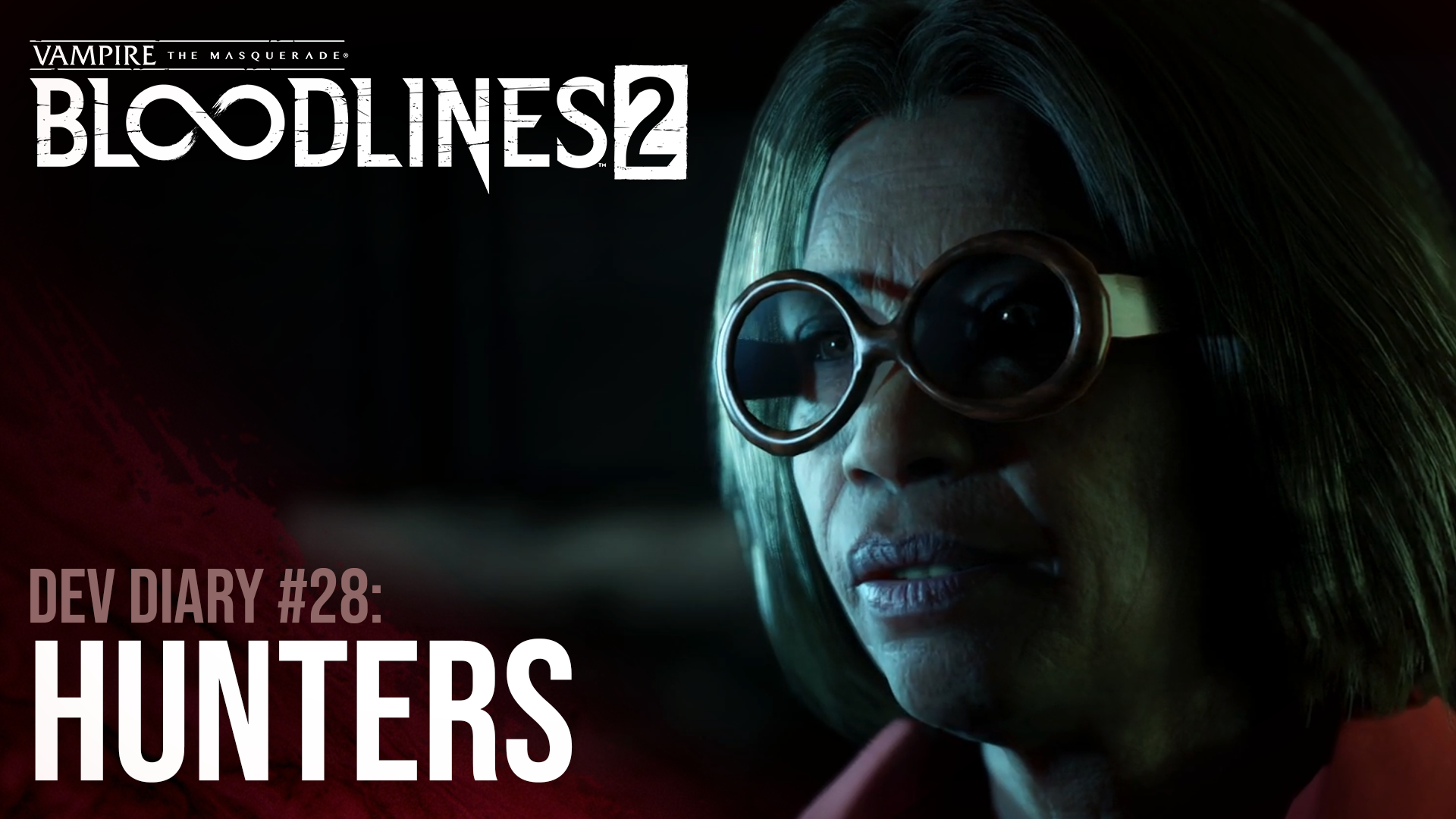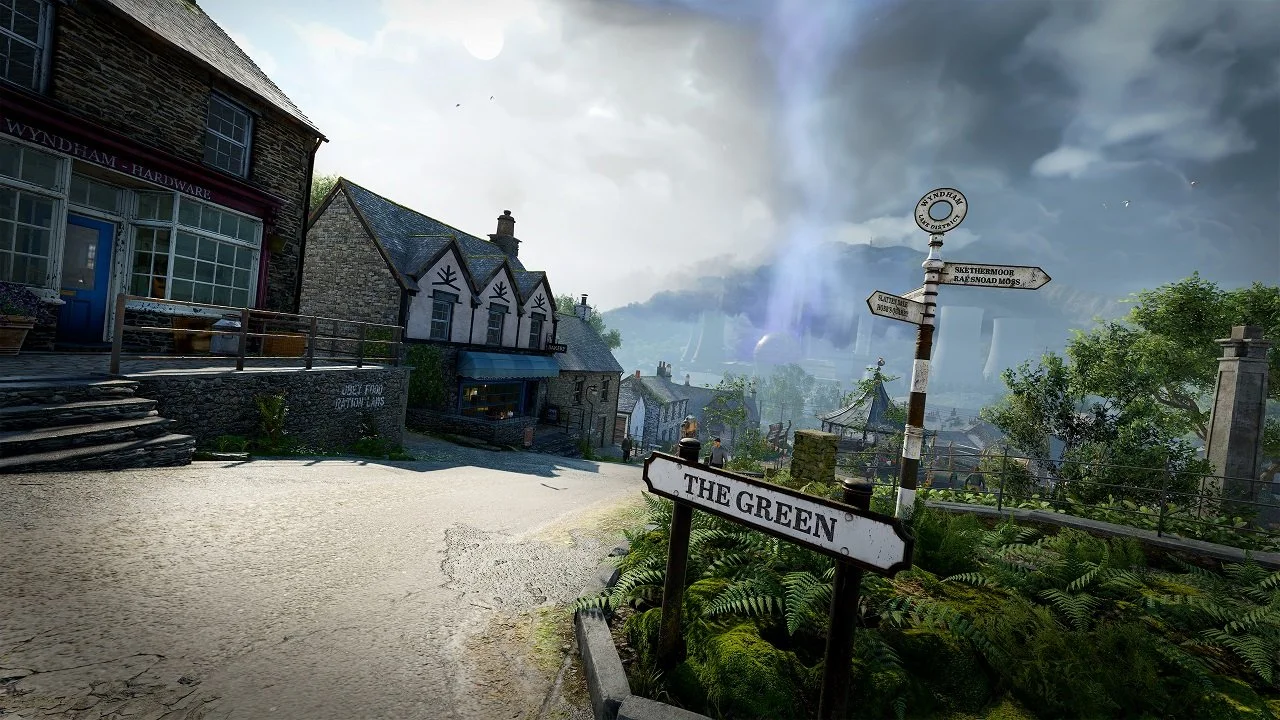PlayStation 5 review code provided by Crows Crows Crows.
The Stanley Parable has had one of the more interesting trajectories as a video game over the span of its existence. Originally released in 2011 as a Half-Life 2 mod, The Stanley Parable was never meant to be anything more than a personal project for the game’s creator, Davey Wreden. It has since gone on to become a foundational title for narrative-based video games, garnering critical and fan acclaim across the industry.
Its relevance continues today with its most recent re-release, The Stanley Parable: Ultra Deluxe, which came to modern-gen consoles and PC on April 27th, 2022. This enhanced version of the game includes new endings, dialogue, and features that meld seamlessly with the original game’s content. Developer Crows Crows Crows has infused an already incredible feat of video game design with enough intelligent writing and absurd experiences to justify the game’s glowing subtitle.
Story
The Stanley Parable: Ultra Deluxe begins just as the original game did: “This is a story about a man named Stanley.” Nothing has changed there, and by design, it never will. But this story was never really about Stanley: it’s about the player. Or maybe it’s about the Narrator. Perhaps it’s a tale of the limitations placed on us by societal expectations and a reflection on the inescapable confines of our role within that very same society, challenging us to make bold choices only to find that our decisions are irrelevant and the result will always be a predetermined conclusion.
Or maybe it’s a story about a bucket. A really cool, shiny bucket that can transfer water better than all the other buckets. Yeah, that’s one, awesome bucket.
The Stanley Parable has always been a balancing act of many things, functioning as both an elegant parody of our seemingly hopeless reality and a hilarious piece of media that can’t help its own existence within that same reality. More simply, it’s a funny game that also has something to say about the real world. It’s absurdist influence can’t be overstated, drawing clear comparisons with Beckett’s Waiting For Godot: just as the two lead characters of that play can never escape the liminal space in which they find themselves, Stanley is doomed wander the halls of his office building in an endless search for both meaning and escape. But, as the game is fond of saying, the end is never the end is never the end.
The new content introduced in The Stanley Parable: Ultra Deluxe takes these themes and stretches them even further. It takes on the monumental task of reckoning with its own legacy almost a decade after its initial release, and does so with gusto and a just a bit of self-deprecating humor. One example of this is the Jump Circle, a fascinating new feature that allows Stanley to jump a set number of times while standing within the confines of the circle. Once the jumps are used up, the feature ceases to exist, but it was pretty fun while it lasted, right?
This somewhat lackluster attempt on the developer’s behalf to inject something fresh into the game is disappointing to the Narrator, so he decides to takes matters into his own hands and create something a little more worthwhile. What he comes up with is a true testament to The Stanley Parable’s core themes and one of the funniest jokes in the entire game. It also adds a new layer of variety and discoverability to every other aspect of the game, a feat that makes the game more than deserving of its Ultra Deluxe subtitle.
Gameplay
The Stanley Parable: Ultra Deluxe is a game about adventure, discovery, and emergent gameplay, but not in the way most people expect. While other games thrust you behind the eyes of an action-hero-in-the-making, The Stanely Parable is more concerned with forcing you to listen to a disembodied voice slowly suffer through a cascade of mental breakdowns.
Sure, you can walk around and click on stuff, but the world is starkly noninteractive. Even the few things you can actually affect (like buttons) often do nothing more than offer the illusion of interactivity. The most impactful I could be on Stanley’s world was through the choices I made. These choices are, in effect, the core gameplay loop of The Stanley Parable: Ultra Deluxe: do I follow the directions of the Narrator and see his story through to the end? Or do I chart my own course, breaking from his prescribed path for something unknown and unexpected?
Each branching set of decisions leads to one of the game’s multiple endings, after which the loading screen is quick to remind you once again that the end is never the end. There’s a joy in discovering a new path, a new way to either break the game or slip through the cracks into another one entirely. And the delicious, omnipresent irony is that every one of these decisions, no matter how outlandish or devilish, was intentionally designed as one of the aforementioned prescribed paths.
I promise this is still The Stanley Parable: Ultra Deluxe.
There isn’t actual choice in The Stanley Parable, but rather the illusion of it. Each decision the player makes, whether that following the Narrator’s directions or ignoring him entirely, were all programmed into the game with the intention of teasing the player with possibility. Assets were rendered, dialogue was written, and the brilliant Kevan Brighting was one again hired to bring that dialogue to life, all as one, large metatextual joke on the futility of player agency. And it’s just as brilliant and exhilarating as it was a decade ago.
The most critical piece of content The Stanley Parable: Ultra Deluxe brings to the game is an object that is simultaneously a tool and a character: The Reassurance Bucket. It’s a special creation that enhances the absurdity of what was arguably the most absurd video game to ever exist. But this simple, metal receptacle provides players with yet another choice that is both extremely important and entirely pointless. The entire concept of the The Stanley Parable is distilled into this bucket. It’s honestly poetic.
Audio and Visual
Kevan Brighting once more provides the rich timbre of his voice to the Narrator, a character who is somehow more visually realized in my head than many video game protagonists I’ve played as over the years. His constant stream of dialogue throughout each loop of the The Stanley Parable: Ultra Deluxe was consistently funny and always poignant, whether I was obeying his orders or flouting his authority at every turn.
His role as a foil is necessary for the game’s concept to work, but the Narrator also functions on another, more benevolent level: company. The world Stanley wakes up to is a dark one devoid of any other sentient life, and the Narrator’s persistent presence is a reassuring one even as he berates Stanley for deviating from the planned narrative.
This aspect of the Narrator’s role was never more obvious than in the ending where I was given access to a dialogue skip option in the form of a button that allowed me to skate past the Narrator’s wordier monologues. But without Stanley to engage with, the Narrator begins to unravel, pleading with Stanley to stop pressing the button.
Eventually, the Narrator is gone, and his absence is deafening. The loss of that one, friendly voice transforms The Stanley Parable into a psychological horror piece. Brighting’s performance is what delivers this emotional evolution, and the game is qualifiedly better as a result. The game also looks pretty good on modern consoles, for what it’s worth.
What Could Be Better?
This section is usually reserved for things we’d want to see improved in the game. Maybe the gameplay didn’t feel all that great, or there was a slight hiccup in the game’s story. Whatever the reason, this would be the place to include that criticism in a respectful, thoughtful manner.
But I’m not really sure what to write. The Stanley Parable: Ultra Deluxe is not a perfect game, but I also wouldn’t change anything about it. It does exactly what it intended to do and does so with gusto, zeal, and just a dash of oregano. Its imperfections feel so intentional and purposeful that I wouldn’t remove them for anything. All that to say, no notes.
Verdict
If you’re interested in playing a video game with exceptional dialogue, multiple endings, and a bucket, then this might be a good game for you. You might also want to see a therapist, but that’s your own business. The Stanley Parable: Ultra Deluxe is funny, witty, irreverent, charming, fiercely intelligent, and an easy recommendation for anyone who enjoys fun games and intellectually challenging media. And, as always, the end is never the end.
The Stanley Parable: Ultra Deluxe is now available for Xbox One, Xbox Series X|S, PlayStation 4, PlayStation 5, Nintendo Switch, and PC via Steam.
